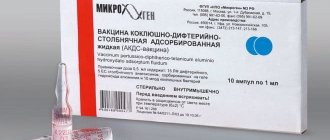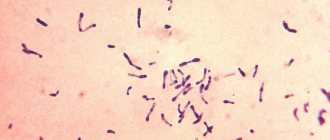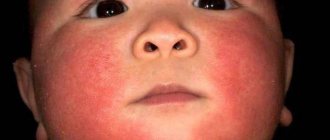Who needs a certificate and why?
Vaccination is a medical way to prevent diseases. With the help of a vaccine, immunity to a specific pathogen is formed, as a result of which, when a person encounters a virus, the disease does not occur. Scientists and doctors around the world have high hopes for universal vaccination in the fight against coronavirus, so vaccine development is underway around the world. Russian scientists have already developed several vaccines, one of which is Sputnik-V. Mass vaccination with this drug has already started, but only in Moscow, although in the foreseeable future this practice will obviously spread to the regions.
After vaccination, the patient is given a certificate of vaccination against COVID-19, confirming completion of the procedure. At the moment, vaccination against coronavirus is done only voluntarily, i.e. everyone makes their own decision about vaccination.
The rules for immunoprophylaxis of diseases in the Russian Federation are regulated primarily by Federal Law No. 157-FZ of September 17, 1998. Paragraph 1 of Article 5 of this law states that citizens of the Russian Federation have the right to refuse vaccination. The law does not provide for the need to substantiate the reasons for such a refusal. Moreover, the same article provides citizens with the opportunity to receive complete, objective and reliable information about the need for vaccination, its possible consequences and complications, and the consequences of refusal. Thus, vaccination is a voluntary procedure; everyone has the right to independently make an informed decision about its necessity.
Moreover, for the vast majority of Russian citizens, refusing vaccinations does not entail any consequences (just as vaccination does not provide any preferences). The consequences of refusing vaccinations are described in the same article. 5 157-FZ and they occur only in certain situations or for certain groups of citizens. In particular, refusal leads to the following:
- a citizen will be prohibited from entering certain states whose stay requires certain vaccinations;
- during an epidemic of a disease for which a person is not vaccinated, he has the right to be denied admission to educational institutions at all levels or to a medical institution to receive medical services;
- if a citizen’s work is associated with the risk of contact with infectious diseases, without vaccination he has the right to be suspended from work or denied employment; a list of such work is given in Government Decree No. 825 of July 15, 1999, among them, for example, work in educational institutions.
However, even these rules do not yet apply to the coronavirus vaccine. The fact is that Federal Law No. 157-FZ contains rules for immunization with vaccines included in the national calendar of preventive vaccinations and the calendar of preventive vaccinations for epidemic indications. These calendars were approved by Order of the Ministry of Health No. 125n dated March 21, 2014. None of them currently includes the COVID-19 vaccine.
Since the coronavirus vaccine is not included in national calendars and no separate regulations have been issued in relation to it obliging citizens to undergo vaccination, at the moment it is voluntary, and coercion to it is illegal. However, given the difficult epidemic situation, it is possible that in the foreseeable future a regulatory framework will be created for mandatory compulsory vaccination against COVID-19.
It follows from this that at the moment a certificate of vaccination against coronavirus is not a necessary document for anything: its absence cannot be grounds for refusal of employment, suspension from work or refusal to provide educational or medical services.
Unfortunately, in practice, there is unofficial evidence that in a number of budgetary organizations and government bodies, management, under pain of dismissal, demands ultimatums to undergo immunoprophylaxis. Such requirements are illegal, but for people whose bosses force them to undergo immunoprophylaxis, a certificate of vaccination against Covid serves as proof of completion of the procedure and is necessary to keep their job.
How to find out about restrictions and other measures due to coronavirus
ConsultantPlus has collected all the current rules in one review: what is prohibited and what is allowed, whether it is mandatory to wear masks, what support measures are still in effect, and what monetary payments individuals and organizations can still receive. Convenient to keep track of changes. Free access for 2 days.
Who issues
Who should be responsible for issuing this document? It is not difficult to guess that this is done by medical institutions where this or that citizen is observed on an ongoing basis. It doesn’t have to be a public clinic, it can also be a private one. The main rule is regular monitoring of a person with contraindications to vaccination.
Most often, children are given a medical exemption from vaccinations after reviewing the tests and examination before the procedure. If the doctor suspects the presence of contraindications, he must give a medical advice. The certificate is issued absolutely free of charge and is issued very quickly. As practice shows, after the inspection is completed, you will have to produce a document - the basis.
Where will it be issued?
A certificate of vaccination against coronavirus is issued at the medical institution where the patient underwent the procedure. Only medical institutions licensed to provide such medical services have the right to perform vaccinations.
The document indicates the date the procedure was performed, the disease prevented, and the name of the vaccine. The doctor signs the certificate and puts his stamp. The form is affixed with the seal of the medical organization.
There are many websites on the Internet where a certificate of vaccination against coronavirus is available for a paid order. Such services are intended for citizens who are not ready to undergo immunoprophylaxis, but who, for one reason or another, need a certificate. You should not resort to the services of such sites, since we are talking about falsifying a document, which potentially threatens criminal liability.
At the moment, there are no specific forms for certificates for the coronavirus vaccine; it is likely that regular forms will be used, as for other vaccines.
What it is
A medical exemption is a document that provides a deferment for vaccination. Most often it is given to children. It confirms that the patient has contraindications for vaccination. Has a temporary effect.
Do not confuse medical withdrawal from vaccinations with refusing them. In the first case, this is an official medical document, in the second, it is the decision of the parents. Typically, this certificate is issued at the discretion of doctors. After this, the pediatrician draws up an individual vaccination schedule. And subsequent vaccinations will be done taking into account the availability of a medical outlet.
Diseases
Very often a medical exemption from vaccinations is given after an acute respiratory viral infection. Exactly the same as after other diseases. Indeed, the relative reasons for receiving our certificate today include the presence of a particular disease. It doesn't matter which one. Even a common runny nose can cause a delay in vaccination of a child and an adult.
Perhaps no one undertakes to vaccinate a sick child. As practice shows, in this case, a medical certificate from vaccinations is issued for 2 weeks after the illness. Or in general for a month from the date of discovery of the disease.
Absolute liberation
In addition to the relative reasons for obtaining a medical deferment from vaccination, absolute exemption can be distinguished. In such circumstances, you will either be denied this or that vaccination for life, or for about a year. What is the absolute reason for which a medical exemption from vaccinations of up to a year can be obtained? These include:
- HIV and AIDS;
- oncological diseases;
- undergoing chemotherapy;
- systematic diseases in chronic form;
- anemia;
- decreased hemoglobin;
- allergic reactions to vaccine components;
- acute diseases accompanied by a malignant course.
Often, in such circumstances, patients are given a medical exemption from (specific) vaccinations for life. Typically, DPT is most often excluded from the standard vaccination list. This is quite normal, because this drug is considered heavy. It is not always well tolerated even by perfectly healthy children. By the way, vaccinations after medical withdrawal will be carried out exclusively on an individual schedule. Otherwise, there is a high risk of complications in a person at any age. Remember this.
Relative contraindications
Most often, the population is faced with relative reasons for delays in vaccination. We can say this is a temporary phenomenon. There are a lot of relative reasons; the enumeration can last a long time. But most often they include some deviations in the analyzes.
Do you need a medical exemption from vaccinations? The reasons why this certificate is temporarily issued are varied. These include:
- chickenpox;
- allergic reactions;
- acclimatization of the child;
- recent contact with any sick person.
The possible list of relative reasons for receiving a medical exemption does not end there. Just some points require more detailed consideration. So what should you pay attention to?
After the medical examination
What to do if you have been issued a medical exemption from vaccinations? It has already been said that this certificate requires the preparation of an individual vaccination schedule. This is usually performed by a pediatrician. But especially responsible parents prefer to contact an immunologist. Only he will be able to correctly draw up a schedule of vaccinations for you and your child, taking into account all the features.
If you are categorical about any vaccines and do not intend to give them to your child, there is no need to bother your head with medical advice. Just write a refusal to vaccinate. Parents themselves have the right to decide which vaccinations to give and not to give to their minor child. If you are afraid of negative consequences, you can refuse such injections for a certain period. For example, until the child turns 1 year old, by this time the immune system is already more stable. Many parents do just that. In any case, if you want to get the most accurate vaccination schedule, you need to contact an immunologist.
Temperature deviations
The most common scenario in which a medical exemption from vaccinations is issued for some time is when a person’s temperature deviates from the norm. Ideally, in humans it should be no higher than 36.6 Celsius. But as practice shows, vaccination is carried out at a temperature of 36 to 37 degrees. This is how things really are.
If a child has low energy or has a fever, he should not be vaccinated. But they may not even give you a medical referral—the doctors simply tell you to come back the next day to check the child’s condition. Maybe he just has a temporary loss of strength. Then you will immediately receive a routine vaccination.
As practice shows, sometimes even an elevated temperature does not bother doctors, and they do not delay vaccination. Only irresponsible cadres behave this way. Unfortunately, this behavior is not so rare. After all, low/high temperature is often considered a temporary phenomenon.
Temporary illnesses
Medical advice from vaccinations for adults and children is issued under the responsibility of medical personnel. Therefore, it is important to have contraindications to vaccination. Otherwise, issuing a certificate may be regarded as a violation of the laws of the country. What are the reasons for issuing a document to defer vaccination?
Some believe that a child’s poor condition on a given day is an excellent reason to obtain a medical exemption. But as practice shows, this is not at all the case. If the child is healthy, but today he does not feel well, you should not hope for a delay in vaccination. You must have valid reasons for obtaining a certificate.
Yes, a temporary illness can be a sign of serious health problems. But if the doctor does not see them, there is no obstacle to routine vaccinations. Parents themselves can write a temporary waiver of this procedure for a certain period of time.
Consilium and commission
It has already been said that under certain circumstances the doctor cannot independently decide to postpone vaccination. Instead, a medical commission is assembled to assess the situation of a particular patient. In the end, the most correct decision will be made. And if doctors consider the reasons for delaying vaccination to be really serious, they may cancel it altogether. Very dubious reasons for medical withdrawal include:
- negative reaction of the body to previous vaccines;
- any immunodeficiency;
- underweight;
- diseases of the nervous system;
- The patient has an allergy to egg white.
It's also worth noting that some vaccinations cannot be delayed for medical reasons. For example, everyone must undergo ADS and ADSM. The exception is a lifetime exemption from vaccination. It is also believed that the polio vaccine should also be given to everyone who is not exempt from such injections for life.










